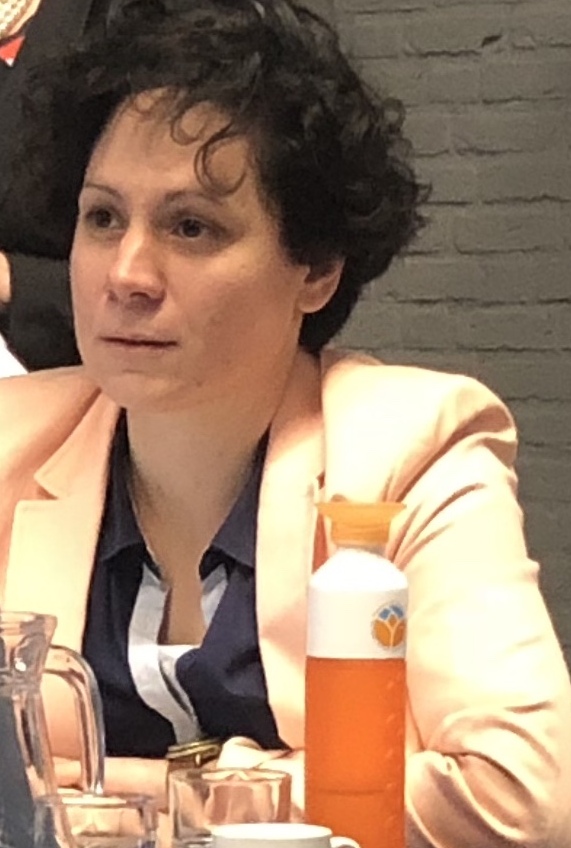PRIVACY Challenge Seminar: privacy and the private in contemporary African communities and emerging technologies
With Mercy King’ori, Lawyer and Policy Analyst in Privacy and Data Protection, Future of Privacy Forum, and Mando Rachovitsa, Associate Professor in Human Rights Law at University of Nottingham
 Mercy King’ori Mercy King’ori |
 Mando Rachovitsa Mando Rachovitsa |
About the Challenge Seminars: PRIVACY hosts two Challenge Seminars each semester. Here, the PRIVACY’s research team join with invited experts on such topics as surveillance, privacy rights, medical ethics, work-life balance or social cohesion, to pose mutual research challenges.
The seminar is open for all but registration is required. Please sign up here.
Abstracts:
Mercy King’ori
What has the head turn got to do with it? Evolution of privacy and the private in contemporary African Communities
For most people, modern privacy laws in Africa represent an assimilation of principles from elsewhere largely due to external influences that have shaped existing legal frameworks. This is largely true to a certain extent owing to the challenges of developing an African conception of privacy.[1] However, amid these influences, practices have emerged in various countries that point to homegrown understanding of what is privacy and realms of the private space.
While legal frameworks are in place, practices and perceptions of privacy are evolving that could point to local perceptions of privacy influenced by experiences that shape how people view what belongs to the domain of the private. An example is the simple practice of conducting a mobile money transaction in Kenya, a situation that can be replicated in many other African countries where mobile money is widely used. A key part of this process is inputting a user’s personal identification number. When a person is performing the transaction, it is common for the other party to turn their head away or move aside to allow the user to conclude this privacy- requiring step without which a transaction would not be authorized. This can be sharply contrasted to a not so far past where studies on attitudes towards privacy in some African societies indicated ignorance towards sharing personal data. It was not uncommon to share these unique numbers.
However, this has greatly changed owing to evolving notions of what characterizes the private space in modern times. While an African understanding of what is privacy is still not yet defined it is possible to observe, in society, evolving practices of what people value as that which should remain in the private sphere due to the sensitive nature.
To this end, this session will explore these changing notions of privacy from the lens of technologies that are widely used. Particularly, whether the law has shaped society’s privacy practices and the extent of such influence. Similarly, we will explore the limitations of development of such notions in light of rapid technological developments and why notions of privacy and the private space may not evolve in a linear manner in the continent.
Mando Rachovitsa
Emerging technologies hacking and manipulating individuals’ autonomy? Whither human rights law?
The talk will focus on the challenges that manipulative practices of emerging technologies bring to society and human rights law.
Contemporary machine learning tools, algorithmic processes and neurotechnology have the growing capacity not only to predict choices but also to influence emotions and thoughts and alter an anticipated course of action, many times subliminally. The dangers for democratic societies that emanate from the possibility to employ such capacity to manipulate and control not only economic choices but also social and political behaviours, have only recently become apparent. Fine grained, sub-conscious and personalised levels of algorithmic persuasion may have significant effects on the cognitive autonomy of individuals and their right to form opinions and take independent decisions. These effects remain largely underexplored.
The talk will highlight specific examples of algorithmic processes and neurotechnology (non-invasive techniques), such as recommender systems or targeted advertisement techniques, and the novel societal harms that they cause. It will then proceed to explore whether the human rights legal framework, as it stands, may capture such societal harms. More specifically, the discussion will bring in the relevance of the right to privacy, and the attributes of the right to freedom of thought as well as recent provisions introduced by the Council of Europe on AI, Democracy and the Rule of Law, the EU AI Act and the EU Digital Services Act.
[1] https://fpf.org/blog/looking-back-to-forge-ahead-challenges-of-developing-an-african-conception-of-privacy/
